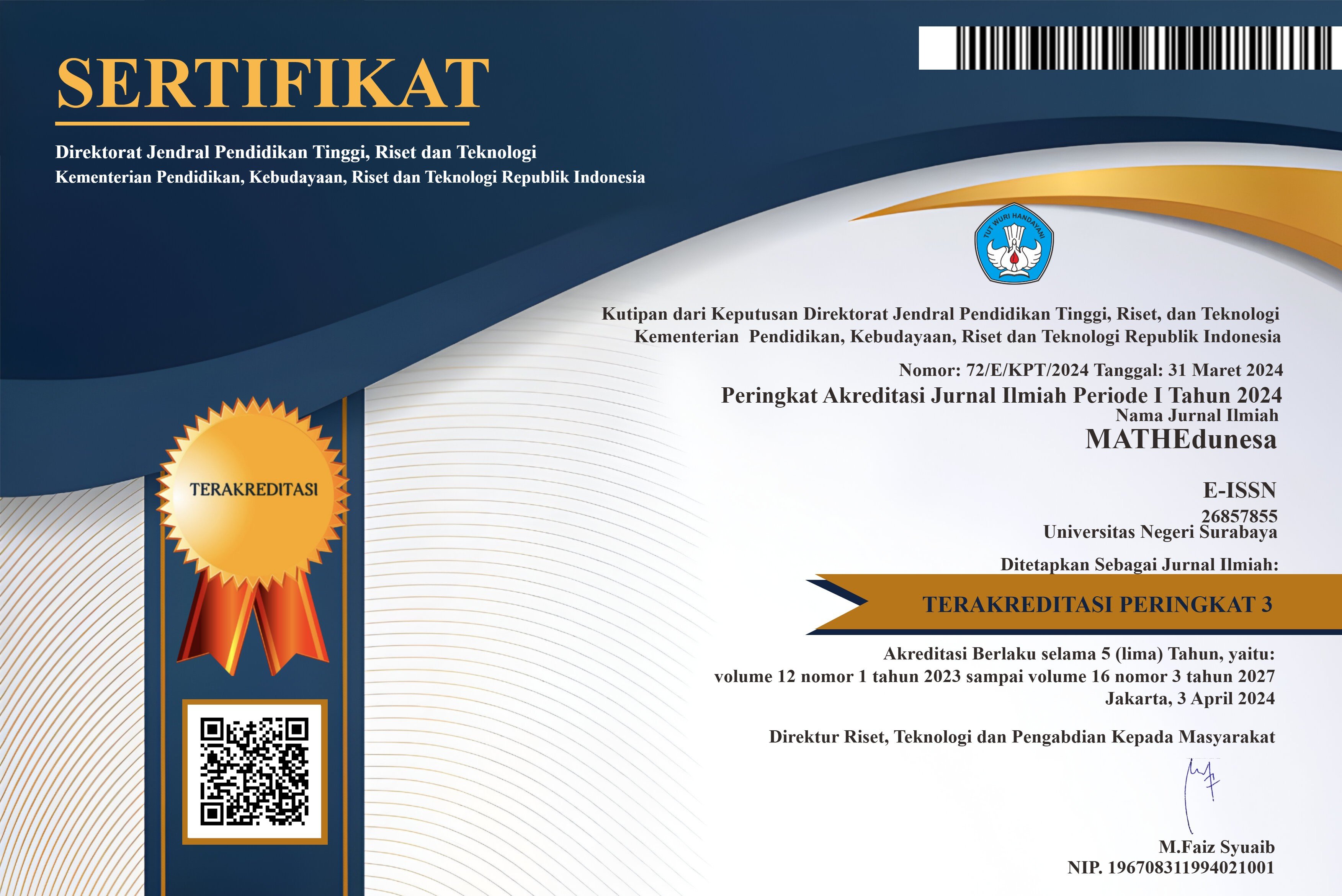Berpikir Komputasional Siswa SMA dalam Menyelesaikan Soal HOTS Berdasarkan Self-Regulated Learning
DOI:
https://doi.org/10.26740/mathedunesa.v14n3.p846-872Abstract
Computational thinking is crucial in the 21st century, but Indonesian students still show low proficiency. One way to improve it is through non-routine questions like HOTS questions. One of the soft skills that may affect computational thinking is self-regulated learning. This study aims to describe the computational thinking of high school students in solving HOTS problems based on self-regulated learning. This research used descriptive research method with qualitative approach at SMA Negeri 1 Krian with varying levels of self-regulated learning. Data were gathered through self-regulated learning questionnaires, math ability test, computational thinking test, and interviews. The results show that students with high and medium self-regulated learning in the general aspect of decomposition identify, determine, and decompose information into simple and complete. Whereas students with low self-regulated learning only partially decompose the information. In the general aspect of pattern recognition, all self-regulated learning levels decompose patterns and find logical ideas that are used to find solutions. In the general aspect of abstraction, students with low self-regulated learning did not present a complete plan for solving the problem. And in the general aspect of algorithm thinking, students with low self-regulated learning did not describe the logical steps and explain the reasons for choosing the steps completely. In the general aspect of generalization, students with high self-regulated learning found the solution correctly. Students with moderate self-regulated learning succeeded in finding a solution, but still not appropriate. Meanwhile, students with low self-regulated learning could not find a solution.
Downloads
Downloads
Published
Issue
Section
 Abstract views: 39
,
Abstract views: 39
, PDF Downloads: 66
PDF Downloads: 66




